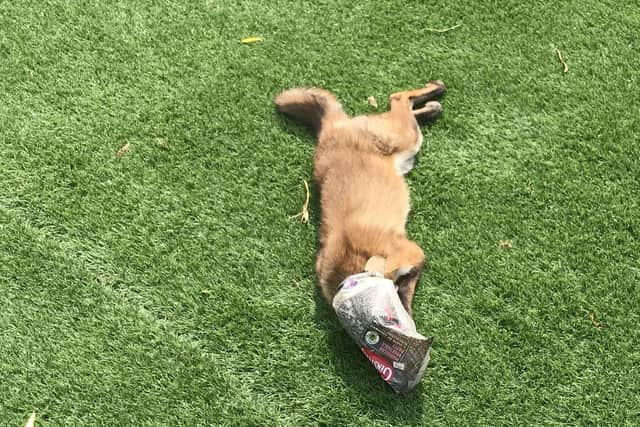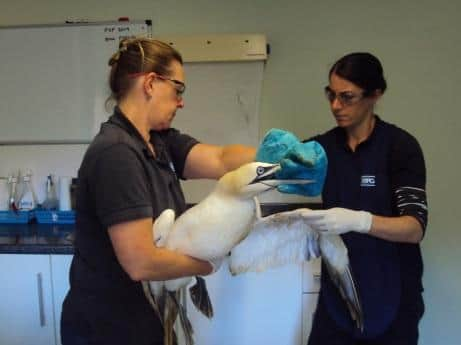RSPCA record 41 incidents of animals being jeopardised by littering in Bucks despite lockdown
and live on Freeview channel 276
Despite lockdown the animal charity still received more than 10 calls a day about animals being put in danger nationwide.
Among the incidents the animal charity were called out to was a duck tangled in a medical face mask, a baby hedgehog with plastic wrapped around her neck, and a fox with his head caught in an old Cornish pasty wrapper.
Advertisement
Hide AdAdvertisement
Hide AdDue to the regularity of these incidents, in spite of a national lockdown keeping people indoors, the RSPCA is urging people to do their bit by simply holding onto their rubbish til they get home or by disposing of it properly.


The charity has also organised the Great British Spring Clean, an ambitious million mile litter picking exercise across the world. The virtual litter picking project is scheduled for May 28 to June 13.
To get involved all that is required is to make a pledge on the charity's website and share photographs showing yourself in rubbish-collecting action. Contributors are encouraged to share their photos using #GBSpringClean.
Head of the RSPCA’s wildlife department Adam Grogan said: “Our staff deal with thousands of incidents every year where animals have been impacted by litter - and they’re the ones that we know of. I’m sure for every animal we’re able to help there are many that go unseen, unreported and may even lose their lives.
Advertisement
Hide AdAdvertisement
Hide Ad“Litter is one of the biggest hazards our wildlife faces today and the pandemic has just added to the problem with many disposable masks just being discarded on the ground. These are a new danger to animals and we’ve been called out to rescue animals like ducks and gulls caught up in the masks’ elastic straps. That’s why we’re calling on the public to get involved in the Great British Spring Clean to help remove litter that may endanger animals.”


A massive percentage of the littering incidents that endanger animals are caused by angling waste. Fishers who discard fishing lines and hooks to plastic netting without thought put sea creatures lives in jeopardy.
Data from the major charity organisation shows that nearly 40 per cent (1,510) of all litter-related calls to the RSPCA last year were about animals that had specifically become caught in fishing litter. From a seal being strangled by an old fishing net to dozens of swans who swallowed or were pierced by old fishing hooks or became entangled in fishing line.
Adam added: “Animals who get their heads or necks stuck in litter can suffer severe injuries as they struggle to break free and can even suffocate, while others will slowly grow weaker and weaker as they try to hunt or find food or water.
Advertisement
Hide AdAdvertisement
Hide Ad“Others will get fishing line or netting cutting deep into their skin, affecting circulation and with wounds becoming seriously infected. These hazards can very quickly become a matter of life or death for these animals and action is urgently needed to tackle this problem head-on. It’s up to every one of us to do our bit in the war against litter.”
“The majority of anglers do dispose of their litter properly and it is frustrating that those who don’t possibly don’t realise how dangerous it is to animals. Discarded line in particular is a terrible hazard for wildlife, particularly as it can be almost invisible.
“We strongly urge those who enjoy fishing to be extra cautious to make sure nothing is left behind. Most anglers are very responsible when disposing of their litter, but it only takes one piece of snagged line to be left in a tree or dropped near the water to endanger the life of an animal. We ask that all those who enjoy fishing to follow the Angling Trust Take 5 campaign and make use of the recycling scheme to dispose of their waste tackle."